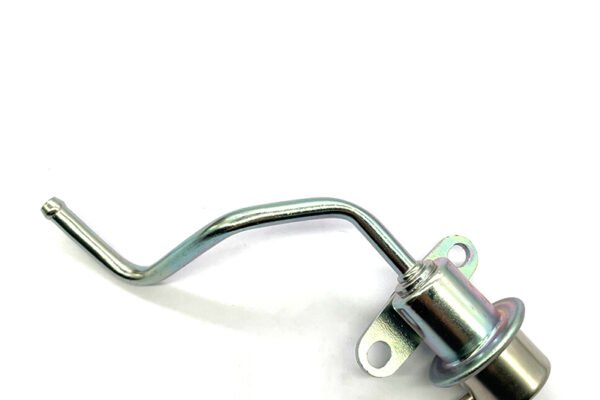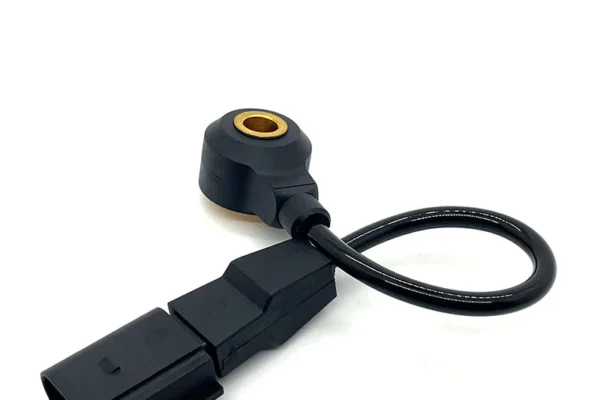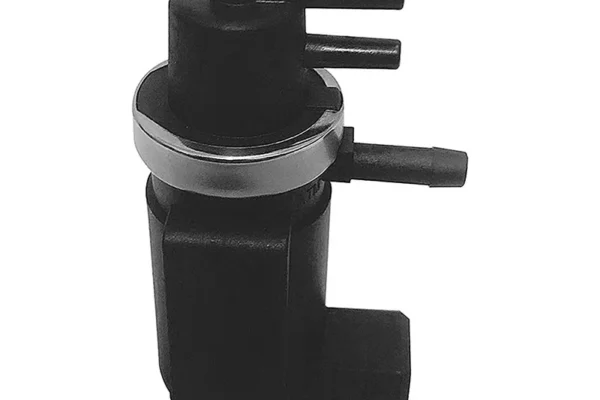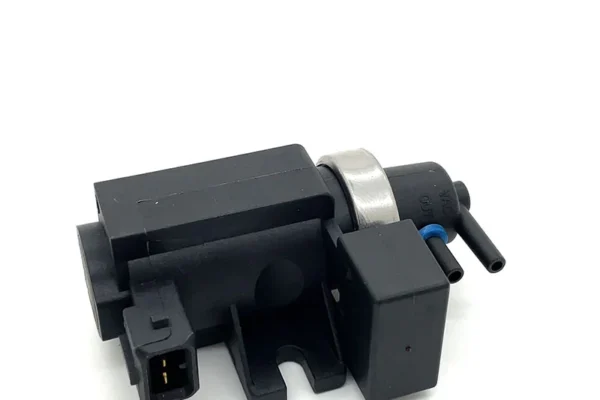The automotive industry is growing fast, and fuel filters are becoming more important than ever. While they might be small, fuel filters can be thought of as the “guardians” of your engine. They do a great job of removing impurities and moisture from the fuel, then delivering clean fuel to the system. This helps prevent wear, blockages, and keeps your engine running smoothly while maintaining power and fuel efficiency. With more cars using technologies like direct injection and turbocharging, picking the right high-performance fuel filter has never been more crucial. However, with so many options on the market and varying levels of quality, car owners are getting more aware of what they need to truly protect their vehicles.
In this article, we’ll dive into how fuel filters work, what key performance parameters to look for, how they differ based on driving conditions, and the best practices for replacing and maintaining them. This way, you’ll get the most out of every drop of fuel and keep your car in great shape.
I. Fuel Filter: Why It’s the Engine’s Indispensable “Guardian”?
Understanding the core value of a fuel filter is the first step toward making the right choice. Its importance goes far beyond that of a simple filtration device.
1. Blocks Impurities – Precision Protection for the Engine
Fuel often contains dust, water, rust, and other contaminants picked up during transportation and storage. If these particles reach components such as injectors and high-pressure pumps, they can cause wear or clogging. A high-quality fuel filter intercepts these pollutants effectively, helping you avoid costly repairs—serving as the first line of defense for your engine.
2. Enhances Combustion – Improves Performance and Fuel Economy
Clean fuel ensures accurate injection and optimal atomization, allowing for more complete combustion. This improves throttle response and reduces fuel consumption. On the other hand, a clogged fuel filter may lead to reduced engine power and increased fuel usage.
3. Extends System Lifespan – Lowers Maintenance Costs
A premium filter prolongs the service life of fuel pumps and injectors, reduces the likelihood of failures, and cuts maintenance expenses. It’s a critical factor in keeping your vehicle running reliably over the long term.
Ⅱ. How It Works and Filter Types: A Look Inside
Understanding the internal structure and working mechanisms of fuel filters helps clarify performance differences and guide better choices.
1. Filtration Mechanism: A Microscopic Art of Separation
At the heart of every fuel filter is the filter media, whose effectiveness largely depends on the materials used. Modern filters typically employ depth filtration, using intricate fiber structures to trap contaminants suspended in the fuel. Taking Fuel Filter Assembly 9642105180C 9638780280D as an example, it adopts a multi-layer filtering structure, which can efficiently filter impurities and moisture in the fuel to ensure the stable operation of the engine.
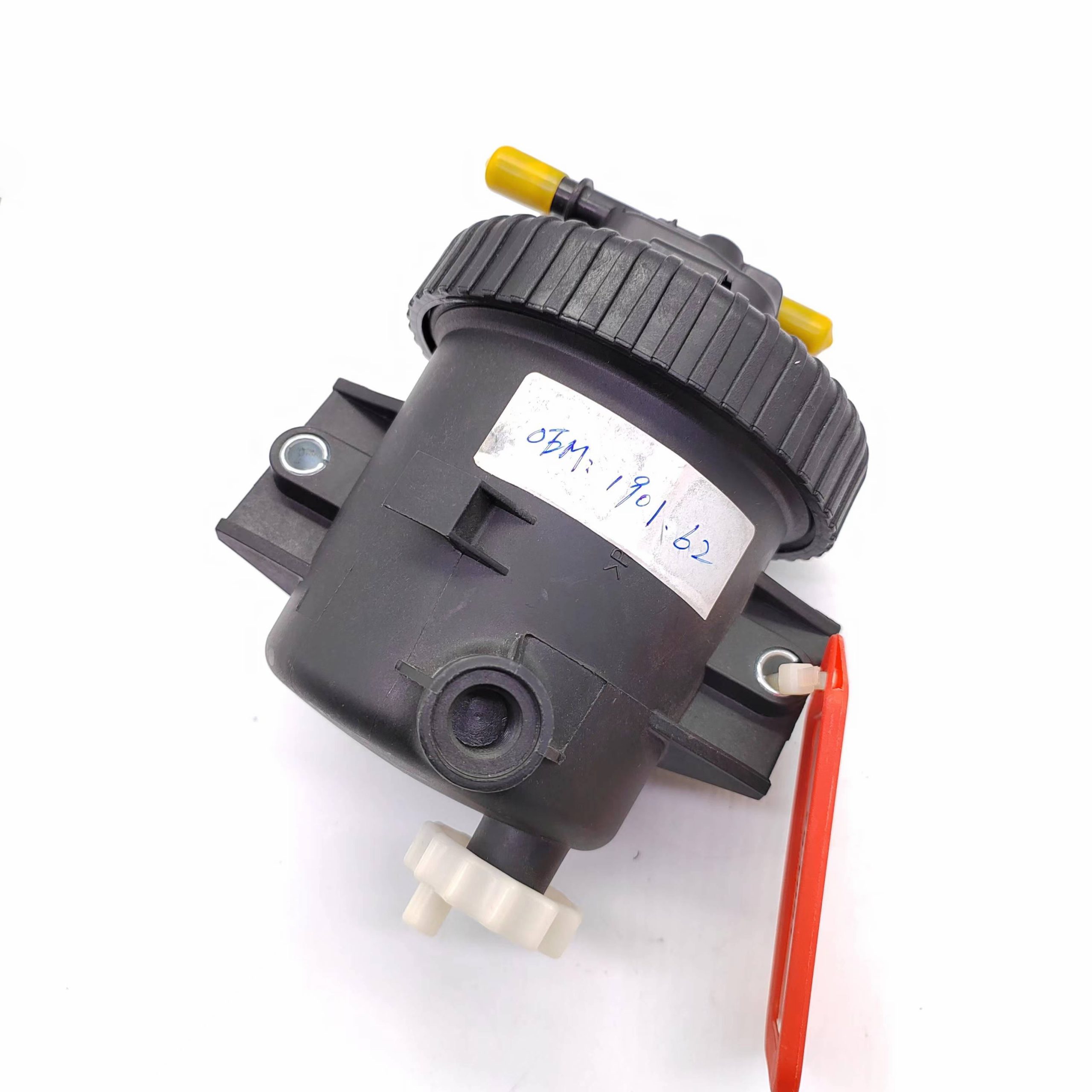
(1) Types of Filter Media
From basic cellulose (paper) to more advanced synthetic fibers like polyester and fiberglass, and even high-end composite materials that combine multiple advantages, the type of media determines key aspects like filtration precision, efficiency, dirt-holding capacity, and lifespan.
(2) Key Performance Indicators
The main performance metrics of a fuel filter include:
〇Filtration Precision (Micron Rating): The minimum particle size the filter can intercept, which must meet engine specifications. For example, gasoline direct injection (GDI) engines typically require 5–10 microns.
〇Filtration Efficiency (Beta Ratio): Indicates the proportion of particles filtered at a specific size—the higher the value, the better the protection (e.g., >99%).
〇Dirt-Holding Capacity (DHC): The total amount of contaminants a filter can hold, directly affecting service life.
〇Pressure Drop: The reduction in fuel pressure across the filter. It should be kept as low as possible to ensure smooth fuel delivery.
〇Water Separation Efficiency: Especially critical for diesel engines, as it helps prevent water-related damage to the fuel system.
By evaluating these indicators together, you can select a fuel filter that not only performs well but is also compatible with your vehicle.
2. Diverse Types of Fuel Filters
Fuel filters can be categorized by installation method and design. The four main types include:
〇Inline Type: Common in older vehicles, these are installed in series along the fuel line.
〇Spin-on Type: Similar in design to oil filters, these screw onto a base, offering convenient replacement.
〇Cartridge Type: Only the internal filter element is replaced, while the outer housing is reused — a more environmentally friendly option.
〇In-Tank or Integrated Type: Built into the fuel pump assembly inside the fuel tank, featuring compact design but more complex and infrequent replacement procedures.
When selecting a fuel filter type, it is essential to strictly follow the vehicle manufacturer’s original design specifications. An incompatible filter type can lead to serious system malfunctions and safety hazards. For example, for Citroen Berlingo, Jumpy, Xsara and Peugeot 206, 306 and other models, it is recommended to use Fuel Filter Assembly 9625224180, which is a filter element design, suitable for 1.9D DW8 diesel engines, with high efficiency filtration, solid structure and easy installation.
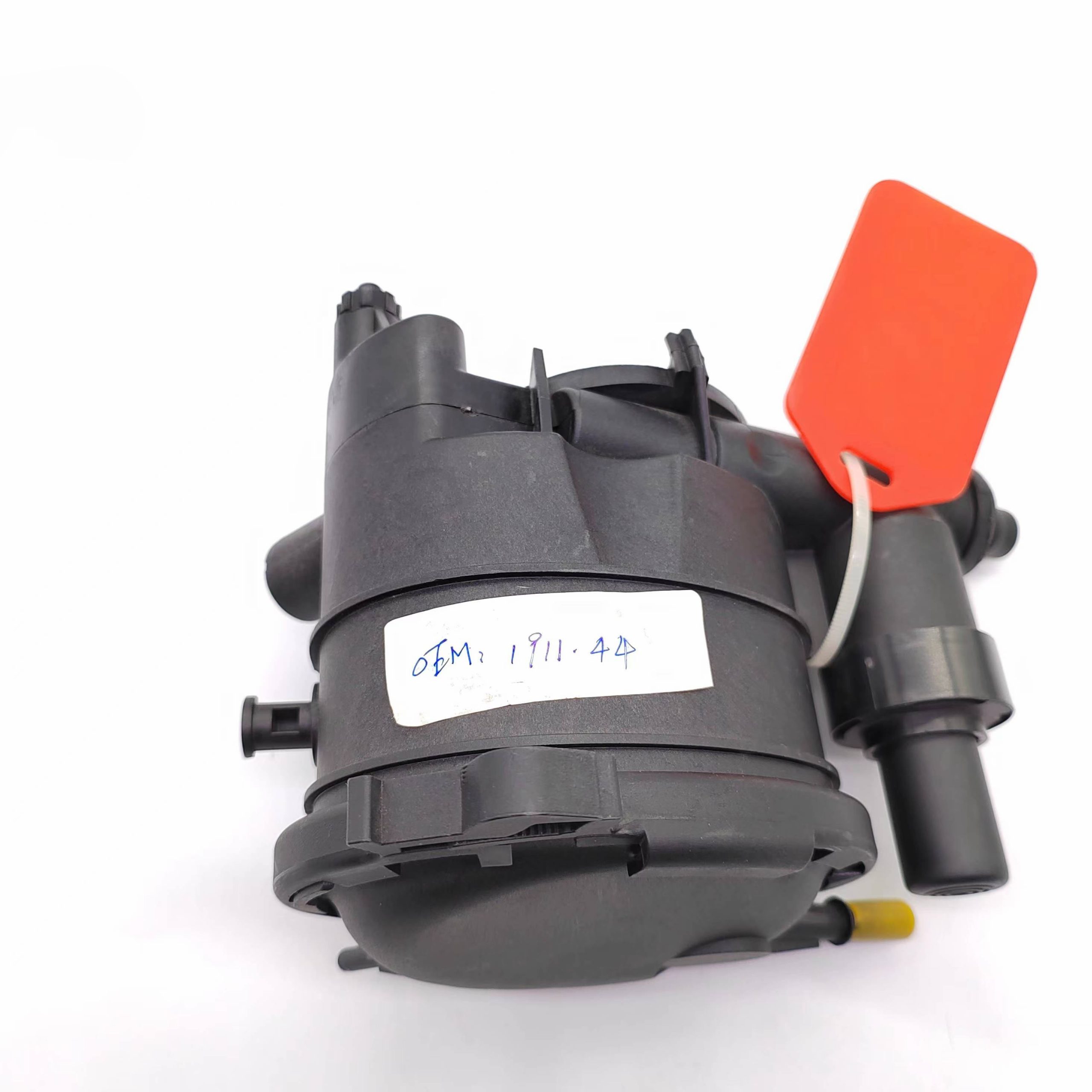
Ⅲ. Fuel Filter Requirements Under Different Driving Conditions
A vehicle’s operating environment places varied demands on its fuel filter, influencing filtration performance priorities.
1. Urban Traffic Congestion: The Invisible Threat of Moisture and Gum Deposits
In heavy city traffic, where you’re often stopping and starting, the engine’s performance can change a lot. If you’re using low-quality fuel that might have gum, dirt, or even water in it, those contaminants can build up in the fuel lines or injectors. This messes with how fuel is sprayed into the engine and can cause blockages. In this case, you’ll need a fuel filter that’s good at separating water and resisting gum or varnish buildup to keep everything clean and working smoothly. For example, the Fuel Filter Assembly 7701061576 8200151379 for Renault Clio II, Kangoo and Suzuki Jimny has a sturdy design and efficient water separation capabilities, making it suitable for use in dusty or wet environments, extending the life of the filter.
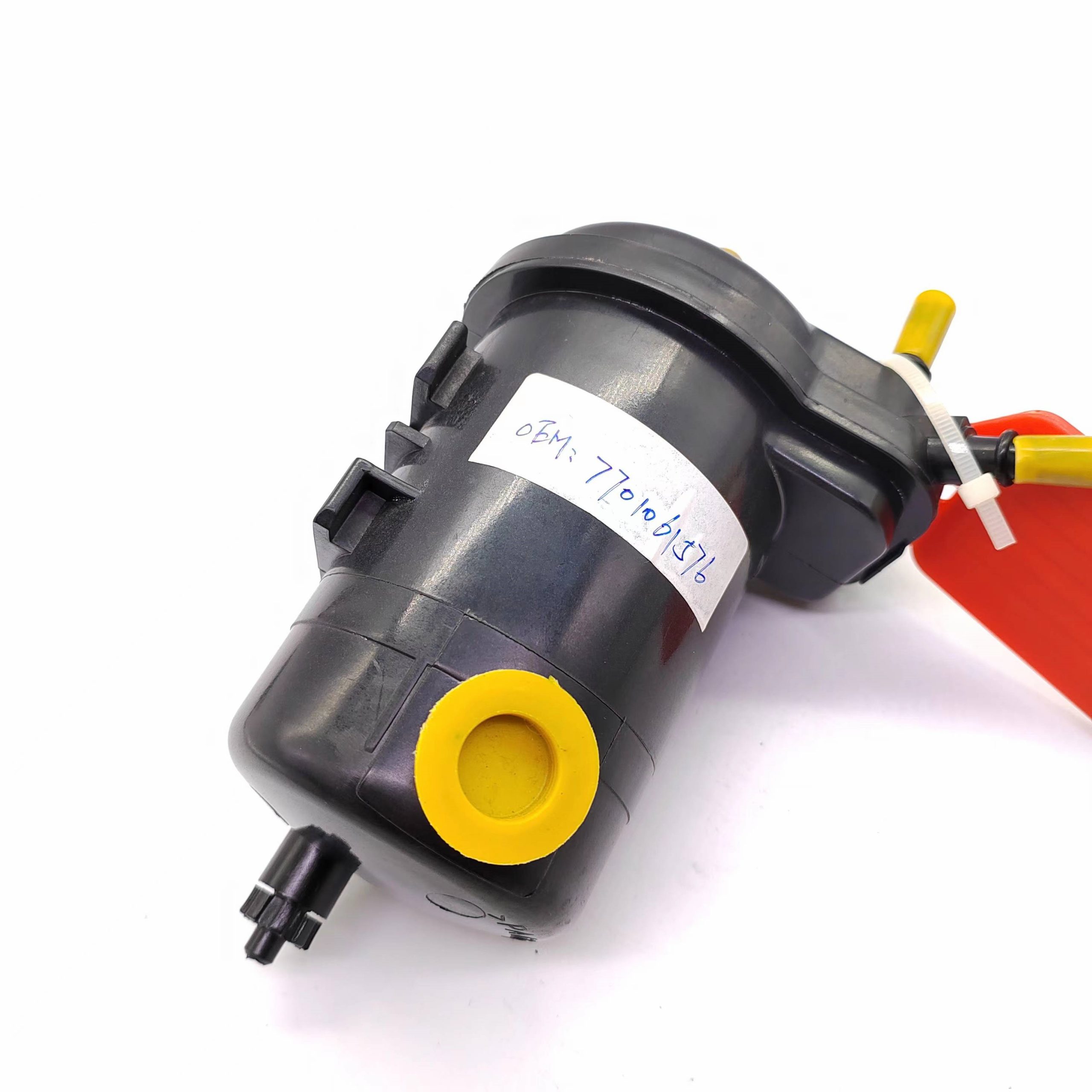
2. Harsh and Dusty Environments: Dirt-Resistance and Filtration Stability Are Critical
If you’re driving on gravel roads, construction zones, or anywhere there’s a lot of dust, your fuel system is at a higher risk of contamination. The filter has to hold more dirt, so it needs to have a bigger capacity to trap contaminants and keep the filtration efficiency high (over 99%). This way, the fuel system stays protected for longer, and you won’t have issues with fuel flow getting restricted because the filter’s clogged up.
3. Extended High-Speed Driving: Guaranteeing Fuel Supply at High Flow Rates
During prolonged highway travel, the engine operates under sustained high load, placing considerable demands on the fuel supply system for uninterrupted, stable fuel delivery. Under these conditions, the fuel filter must exhibit low pressure drop characteristics and excellent fuel flow capacity, ensuring smooth and reliable fuel supply even at high engine speeds and large fuel volumes. This prevents power loss or the risk of engine knock caused by restricted fuel delivery.
4. Heavy-Duty and Commercial Vehicles: The Ultimate Endurance Test for Filters
For long-haul trucks, construction vehicles, and heavy-load machinery, extended operational hours and heavy cargo place fuel systems under continuous high-stress conditions. Here, fuel filters must handle higher contamination levels and filtration intensity. Specialized heavy-duty fuel filters designed for demanding applications should be selected — featuring ultra-high dirt-holding capacity, robust high-pressure structures, and extended service life. This reduces replacement frequency, minimizes downtime, and ensures sustained vehicle performance in commercial operations.
Ⅳ. Key Factors for Choosing the Right Fuel Filter
How can one identify the most suitable fuel filter amidst a wide array of options? The following criteria are crucial in making a sound decision.
1. Vehicle Compatibility
It is essential to verify the compatibility of the fuel filter with your vehicle’s make, model, production year, engine type, filter configuration, connection size, and pressure specifications. The most reliable method is to consult the vehicle manual, seek advice from automotive professionals, or use the part lookup tools provided by reputable auto parts suppliers — often searchable via your vehicle’s VIN (Vehicle Identification Number). Avoid relying solely on intuition or price. An incompatible fuel filter can pose significant safety risks. OEM parts generally offer the highest compatibility, though high-quality aftermarket brands can also deliver precise fitment and reliable performance.
2. Performance Parameters: Balancing Efficiency and Service Life
Beyond compatibility, focus on the product’s filtration performance. Select filters whose filtration precision meets or exceeds the specifications required by the vehicle manufacturer. Understand the meaning of filtration efficiency (commonly expressed as a Beta Ratio) and prioritize products offering higher efficiency ratings. Additionally, evaluate the filter’s Dirt-Holding Capacity (DHC) according to driving conditions and consider its pressure drop characteristics, ensuring a smooth and unrestricted fuel supply. Always confirm whether the product complies with relevant industry standards (such as ISO specifications).
3. Brand Reputation and Product Quality: Credibility Is the Foundation of Reliability
Opting for renowned brands is an effective way to ensure product quality and reliability.
(1) OEM Parts (Original Equipment Manufacturer)
OEM parts are manufactured by suppliers officially designated by vehicle manufacturers. They offer optimal fitment, consistent quality, and comprehensive after-sales support, making them the preferred choice for users seeking factory-standard components — although typically at a higher price point.
(2) Reputable Aftermarket Brands
Numerous globally recognized fuel filter manufacturers, such as MANN-FILTER, Bosch, Mahle, Donaldson, and Fleetguard, supply both OEM parts and high-quality aftermarket products. These brands consistently provide complete product specifications, clear performance parameters, and operate under strict quality control systems, making them highly cost-effective alternatives.
(3) Beware of Low-Quality, Bargain Products
Unbranded or unidentified low-cost filters may seem attractive in price, but often suffer from inferior materials, poorly constructed filter media, substandard sealing, and inadequate quality control. Their use can result in fuel system contamination and costly damage — a classic case of short-term savings leading to long-term loss. Always prioritize product quality.
(4) Examine Product Details
When selecting a fuel filter, you can judge craftsmanship and quality through careful observation. High-quality filters feature smooth, burr-free housings with even, durable coatings. Connection threads should be precise, without machining defects. Sealing rings must be elastic, firmly seated, and free from aging or deformation. In cartridge-type products, the internal filter element should display tightly packed, evenly spaced pleats, with a consistent structure. Additionally, legitimate brands typically provide clear, well-printed packaging, complete with model numbers, anti-counterfeit labels, and user instructions to help verify authenticity and ensure correct installation.
(5) Choose Reliable Purchasing Channels
To avoid counterfeit or substandard products, always purchase from authorized dealers, major chain stores, or reputable e-commerce platforms. Avoid roadside vendors or unauthorized online shops. Trusted sources ensure product authenticity and reliable after-sales service.
Ⅴ. Proper Installation and Replacement of a Fuel Filter
Timely replacement and regular inspection are key to maximizing a fuel filter’s performance.
1. Replacement Interval
Fuel filter replacement intervals vary depending on vehicle model, operating environment, and fuel quality. For gasoline vehicles, replacement is generally recommended every 30,000 to 50,000 km. For diesel vehicles, every 10,000 to 20,000 km is typical.
Always refer to the vehicle’s maintenance manual for specifics.
If fuel quality is poor or the driving environment is harsh (e.g., dusty, humid, off-road), consider shortening the replacement interval appropriately.
2. Inspection Tips
In cases where symptoms like hard starting, reduced power, or increased fuel consumption occur, the fuel filter should be one of the first components to check. You can assess potential blockage by measuring the pressure differential across the filter with a fuel pressure gauge. However, replacing a fuel filter involves flammable fuel and a pressurized system, so if you choose to perform the replacement yourself, ensure you have the proper tools and knowledge and strictly follow all safety protocols. When in doubt, it’s best to let a professional technician handle the replacement to ensure both safety and reliability.
Ⅵ. Frequently Asked Questions (FAQ)
Q1: How do I know when to replace the fuel filter?
A1: Symptoms such as hard starting, loss of power, increased fuel consumption, or engine shaking may indicate a clogged fuel filter. These are typical signs of a decline in filter performance, and the filter should be inspected and replaced if necessary.
Q2:How much does it cost to replace a fuel filter?
A2: The cost can vary depending on several factors. The filter itself can range from $20 to $150 based on the brand, materials, and vehicle type. If you opt for a professional technician to perform the replacement, the labor cost typically ranges from $60 to $120. For accurate pricing, it’s best to consult with a local repair shop.
Q3: Can I replace the fuel filter myself?
A3: Yes, but under certain conditions. If you have basic automotive mechanical knowledge, the right tools, and understand the safety protocols, you can attempt the replacement. The key is to ensure proper installation, avoid fuel leaks (which pose a fire risk), and prevent improper installation (which could cause oil leaks or filtration failure). It’s highly recommended to read the relevant section of the vehicle’s service manual or watch trusted tutorial videos before attempting. If you’re unsure, seeking professional help is the safest choice.
Q4: How can I tell if a fuel filter is an OEM part?
A4: Original equipment manufacturer parts are usually manufactured by the original equipment supplier designated by the automobile manufacturer, and have advantages such as original factory certification, stable quality, and complete matching. To determine whether it is an OEM part, you can check whether there is a vehicle brand logo (such as TOYOTA, BMW, etc.) and a part number on the packaging. Sometimes it will also be marked with “OEM” or “Genuine Part”. At the same time, OEM parts are often sold through 4S stores or authorized dealers. The price is relatively high but the quality is guaranteed. If you are not sure, it is recommended to find the corresponding original factory number in the OEM parts catalog through the VIN code and compare it with the purchased product.
Q5:How to choose a reliable fuel filter supplier?
A5: Choosing a high-quality supplier is the key to ensuring product authenticity and after-sales service. It is recommended to purchase through authorized dealers or 4S stores of the vehicle brand first, which is suitable for users who pursue original accessories; you can also consider the official direct channels or authorized stores of internationally renowned auto parts brands, such as MANN-FILTER, Bosch, Mahle, Fleetguard, etc. These brands usually provide products with stable quality and complete certifications. In addition, large chain auto parts dealers (such as RockAuto, AutoZone, etc.) are also reliable choices, with transparent product information and a complete after-sales system. You should avoid purchasing from online stores without brand logos or channels with abnormally low prices to avoid buying counterfeit and shoddy products. If you have doubts about the qualifications of the supplier, you can check its authorization information through the brand’s official website to further verify its reliability.
Ⅶ. Conclusion: To inject vitality into the engine core, wise choice is the key
The fuel filter is an indispensable Auto Parts in the power system. Its status is directly related to the “health” and “vitality” of your car. From protecting precision engine parts to optimizing power and fuel consumption, to extending the life of the entire fuel system, its role runs through the whole process.
Choosing a suitable fuel filter requires us to go beyond the price tag and focus on the core elements: accurate vehicle matching is the premise, reliable filtering performance is the core, and a reputable brand (whether it is OEM parts or high-quality after-sales parts from a well-known fuel filter manufacturer) is the guarantee. At the same time, following scientific replacement cycle recommendations, paying attention to the “help signal” sent by the vehicle, and having professionals inspect and replace it are the key to ensuring that this line of defense continues to be effective.


